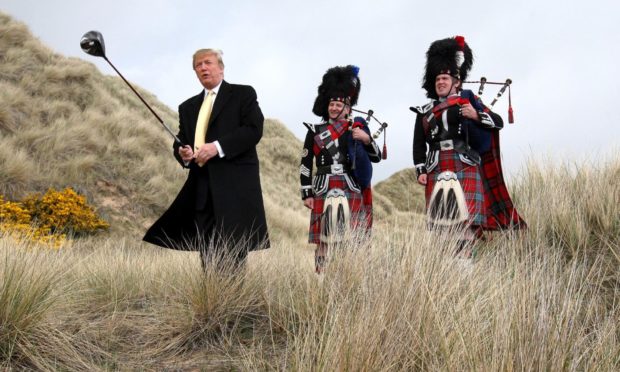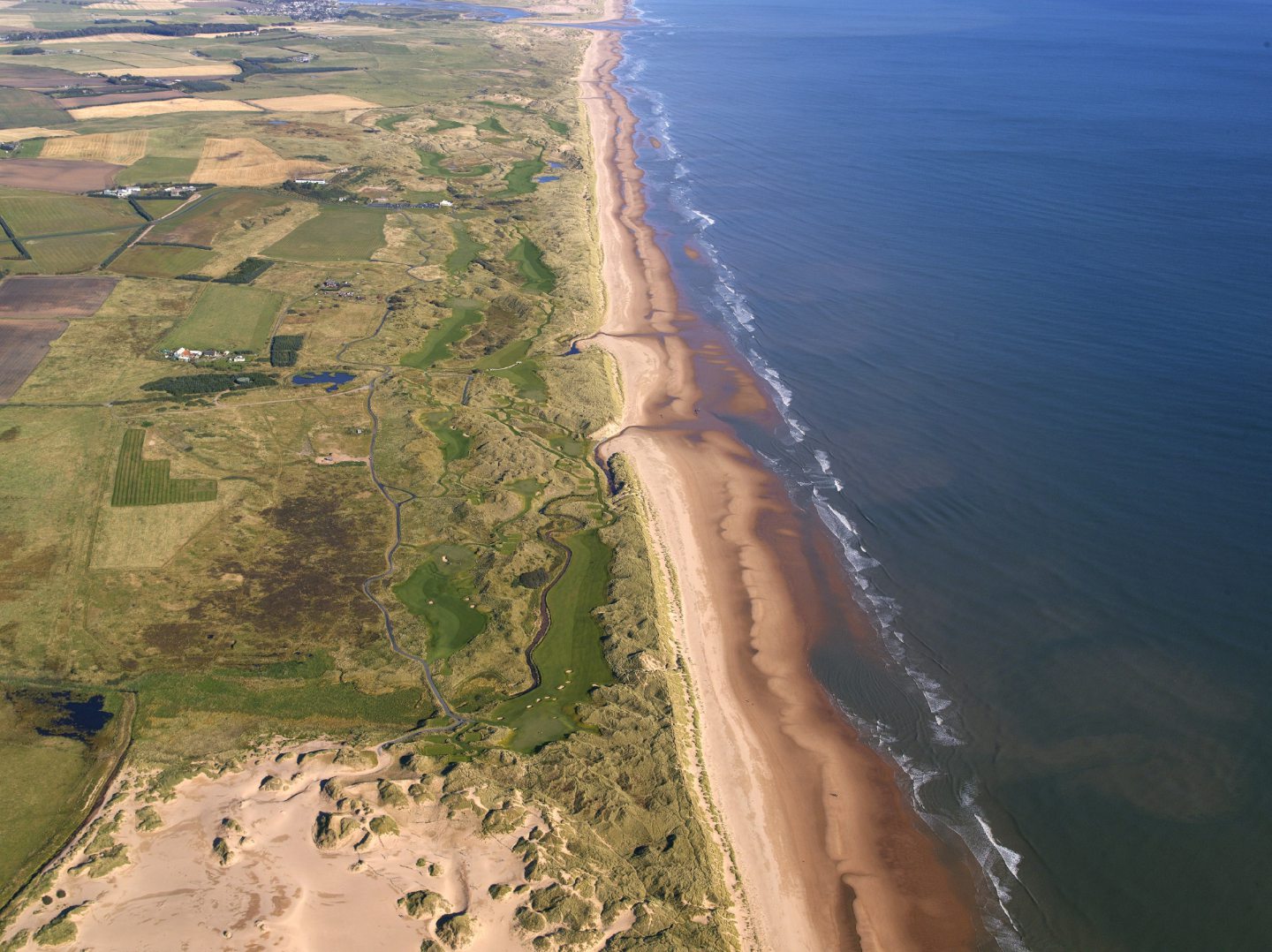A judge wants to ‘test’ whether a legal bid to force the Scottish Government to probe Donald Trump’s Scottish golf courses is being used by his opponents to politically attack him.
Lord Sandison asked advocate Kay Springham QC on Thursday whether her clients are using their action at the Court of Session as a means to undermine the businessman.
Lord Sandison posed the question after hearing legal submissions from Ms Springham, who is acting for Avaaz – an international human rights organisation.
The group, which is incorporated in the US state of Delaware, is seeking permission to pursue proceedings against the Scottish Ministers.
They want the government to commission investigators to find out how Mr Trump was able to finance the purchases of golf courses at Menie, Aberdeenshire, in 2006, and Turnberry, in Ayrshire, in 2014.
On Thursday, Ms Springham told Lord Sandison that it was in the “public interest” for such an investigation to take place.
But Lord Sandison asked Ms Springham whether her clients were more interested in pursuing their own political agenda than helping clarify public law issues.
Lord Sandison was being asked to allow the case to proceed – despite the proceedings being raised outside of a legal time limit.
‘Former President Trump is regarded as a divisive figure’
He asked Ms Springham: “I am anxious to test whether your clients are really interested in is the genuine determination of the general public law issues in this case or whether there is a possibility that this is simply being used as a vehicle for an altogether different and less pleasant mode of proceeding.
“One does not need to follow the news too closely to know that former President Trump is regarded as a divisive figure and a divisive figure against whom various parts of certainly the American population and others wish to take such action as they can in whatever forum they can and it might be thought quite easy to dress up important, undoubtedly important issues of public law – that is the proper application of Unexplained Wealth Orders in Scotland – to dress up as that something that is actually an ad hominem attack on former President Trump.
“Do you see the point I’m making?”
But Ms Springham replied that her clients were keen to see the Scottish Government comply with their legal obligations.
She replied: “The point of the petition is twofold in the sense that it is to establish that the petitioners are properly applying the powers that they have.
“And secondly that they are properly applying the powers in relation to the issues and concerns which have arisen over a substantial asset held by Mr Trump in Scotland.”
Avaaz wants a judge at the Court of Session to force the government to reverse its decision not to investigate the courses’ funding.
The Trumps have branded claims that the golf courses were acquired illegally as having “no basis in fact”.
At a previous hearing, the Scottish Government’s lawyer Ruth Crawford QC said that legal rules state that Avaaz should have raised their case within three months of the Holyrood administration’s refusal.
On Thursday, Lord Sandison said he believed the action brought by Avaaz had a “real” chance of success.
But he also ruled that the organisation hadn’t brought the proceedings within three months of the Scottish Government’s refusal.
Lord Sandison then asked the lawyers in the case whether the court could use its discretion to waive the three-month time limit and allow the matter to proceed.
Unexplained Wealth Order
Ms Springham made reference to how the Trump Organisation’s former Chief Financial Officer Allen Weisselberg had been charged in New York with alleged tax evasion and fraud.
The court had heard on a previous occasion how Mr Weisselberg had involvement with Mr Trump’s business interests in Scotland.
Ms Springham said: “The subject of.. the Unexplained Wealth Order is a former President of the United States – that position could hardly be more important.
“It’s also evident from the matters set out in the petition that there are real and substantial concerns about financial arrangements of the Trump Organisation of which Mr Trump is the sole or principle owner.
“The reason why it is important in relation to this particular individual – if it is the case that there is the basis for an unexplained wealth order then it would be for Mr Trump to explain how it is that he was able to acquire substantial and important assets within Scotland.”
However, Ms Crawford told the court that the matter shouldn’t proceed as the petitioners weren’t attempting to act in the public interest.
She said the organisation was using the Scottish courts to pursue their own political objectives and pointed to a letter it sent to the first minister to show her point.
She also said that if the matter was important to Avaaz, then it should have raised the action within three months of the Scottish Government’s rejection in April 2019.
She added: “In my respectful submission my lord, it is clear that in substance and in effect, the petitioner is using the current judicial review proceedings to serve its own political and private interests.
‘Uncomplimentary view of Mr Trump’
“In the letter from the petitioners dated November 15 2020 to the First Minister, there are various passages which are indicative of the petitioner’s somewhat uncomplimentary view of Mr Trump and again it is clear from the terms of that letter that they seek to serve their own – no doubt genuinely held political belief about the character of Mr Trump.
“So we see from the letter of November 15 2020, we see Mr Trump being described as somebody who has dangerous contempt for the law and democracy and also this politically exposed person – that is Mr Trump – is manifestly corrupt.
“In my lord, I do not take issue with the petitioner’s taking that view. They are perfectly entitled to hold those views.
“What I do take issue is for them to come to this court and submitting to my lord that they are somehow upholding the public interest.
“One needs to ask the question what is the public interest in requiring the respondents to seek an unexplained wealth order in respect of the former president of the United States.
“If there is a public interest, why was the petition not raised three months after April 2019 if the matter was so important to them?
“One has to ask the question why was nothing done about it?”
“In all the circumstances, I would invite my lord not to exercise his discretion and to refuse an extension to the time limit.”
Lord Sandison thanked lawyers for their submissions. He said he needed time to consider his decision on whether the action should proceed.
He added: “I will need some time to think about the matters. I will intimate a decision as soon as possible and I don’t think that will be very long.”


